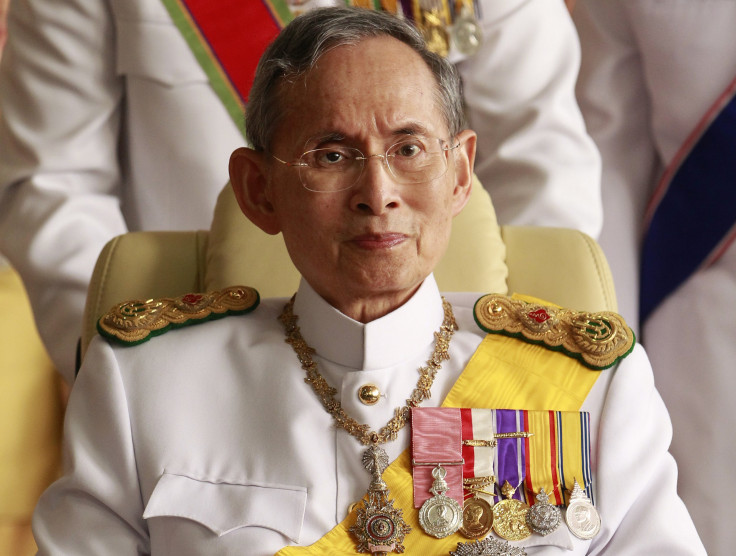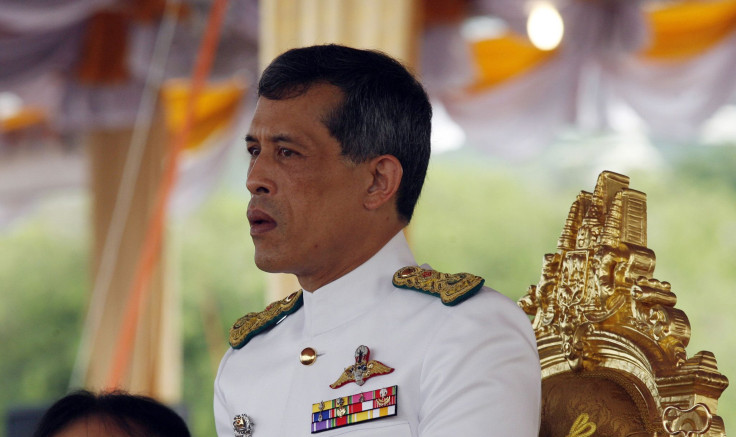Thailand Monarchy Crisis 2014: Sickly King And Unpopular Heir Makes For An Uncertain Future

The decision to cancel the annual birthday appearance of Thailand’s King Bhumibol Adulyadej because of his poor health has raised questions about the future of the country's monarchy amid a controversial military coup. The world’s longest-serving monarch -- he has reigned for more than 68 years, five years longer than Queen Elizabeth II of the British Commonwealth -- suffers from a debilitating spinal condition, had his gallbladder removed in October and spent nearly four years in an Australian hospital from 2009 through 2013. His unpopular son, Prince Vajiralongkorn, is likely to succeed him, which could pull Thailand further into unrest.
“The king’s death would be tragic for the public, but also for Thailand’s political institutions," said Rachel Wagley, assistant director of outreach at the National Bureau of Asian Research in Seattle. “The monarchy will continue past the king’s death, but the respect given to King Bhumibol is unlikely to be handed down in full to his successor [Vajiralongkorn].”
The prince is known for his lavish lifestyle and, more recently, a corruption scandal involving members of his wife’s family. He enjoys the support of neither the public, nor the political elite. His far more popular sister, Princess Sirindhorn, could succeed Bhumibol, but it would be the first time a son didn’t succeed his father and such a mixup of Thai tradition that experts don’t see it happening.

Further clouding the future of the monarchy is the coup of a democratically elected government by the Royal Thai Armed Forces in May, one of the most contentious and controversial military takeovers in recent history. That's saying something for Thailand, which has seen 12 coups since 1932. Throughout his reign, which began in 1946, Bhumibol, 87, stepped in after each coup to legitimize or shut it down and stabilize the country before it devolved into serious conflict.
The coups are mounting in significance “as the country continues to avoid an open national dialogue on questions of democracy, majoritarian will and centralization,” Wagley said.
But many worry Vajiralongkorn doesn’t have the public support to steady Thailand like his father has, which could diminish the role of the monarchy and leave Thai politics without an arbiter. The prince is unpopular with the military currently in charge of the government because he’s close with former Prime Minister Thaksin Shinawatra, who has not always toed the line with Thai royal elites. Not to mention, Shinawatra’s sister, Yingluck, was the prime minister overthrown in this year’s coup.
“Over the next couple of decades, the influence of the monarchy and the reverence paid to it by the public may indeed erode if the king’s successor is unpopular,” said Wagley. “Crown Prince Vajiralongkorn will in all likelihood succeed his father, and his reputation among both the public and political elites borders on notoriety.”
One Thai woman, 60-year-old Nurek Dechsopha, told the New York Times she prayed for the king on the fifth of every month, and admitted “we are all in denial” about his poor health, even though “we know he is getting worse.”
© Copyright IBTimes 2024. All rights reserved.






















